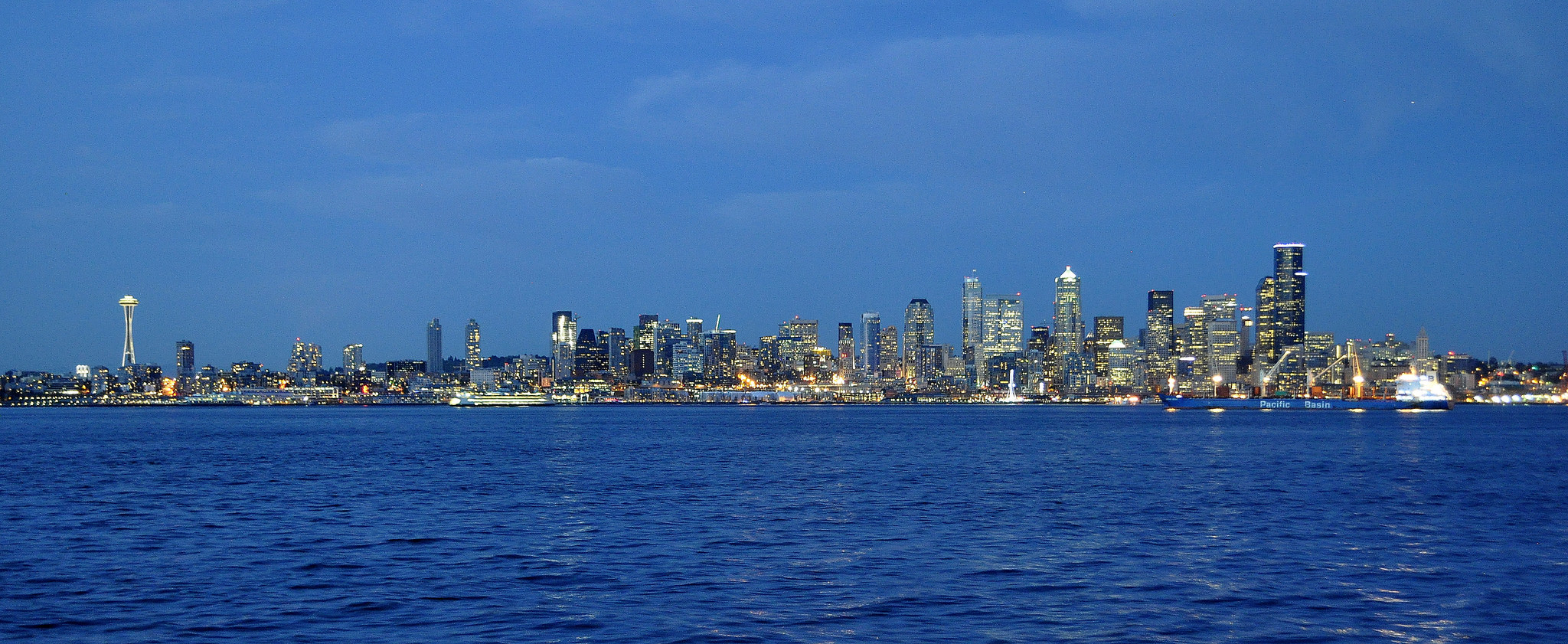Cities in the Age of Trump

Joe Wolf (Flickr)
Tuesday's election was an existential whiplash in a number of ways, but it was a particular disaster for our cities. As Erica Barnett wrote in The C is for Crank this morning, Trump has promised to withhold all federal funds from Sanctuary Cities, of which Seattle is one. If enacted, human services, parks, housing, and transportation projects could take the hardest hit, including local projects such as the Center City Connector, Madison BRT, all Move Seattle bus corridors, the bike share relaunch, and Sound Transit 3. At the federal level, Trump's has hinted that "ranch/farm-to-market" are as important as "crowded subways", he has chosen a highway-industry lobbyist to lead transportation policy, and he will almost surely undo our already halting efforts at addressing climate change.
This is all happening not because of our cities, but despite them. Hardly the 'hell' Mr. Trump described, our thriving cities nonetheless received a stunning rebuke from rural America. Rural Obama voters who believed in "Yes We Can" in 2008 turned out in 2016 to say "Well, We Didn't", especially in the upper Midwest.
Their slim majorities bested worthless urban Democratic margins; among the 35 largest U.S. cities, only 5 voted for Trump. Clinton is on pace to have the largest popular vote victory of any losing Presidential candidate, currently 400,000 but possibly as many as 2 million once all votes are counted. (Al Gore's 2000 margin was 544,000 votes). That means a vote for Clinton was only worth 75% of a vote for Trump. Democrats have won the popular vote in 4 of the past 5 Presidential elections, but will have had only 2 Presidential terms. 52% of the votes for Senate went to Democrats, but Republicans won 59% of the seats available this cycle (20 of 34).

(Graphic mine. Data from NY Times)
In the age of The Big Sort, we are clustering together like never before, and our cities are small, dense pockets of wealth, opportunity, and political homogeneity. Lest we continue to be bluer islands in a redder sea, it is all the more imperative that our cities be physically as well as socially inclusive. To the extent that we make urban access harder, whether through inadequate transportation or undersupplied housing, we merely concentrate our own privilege and harden the rural/urban divide. As we recoil in horror at Trump's wall-building dreams, we should have the self-awareness not to build our own virtual walls through socio-economic means. Otherwise, we hand our rural neighbors a potent cocktail, equal parts resentment of Others and fear for oneself.

Washington Post (click for article)
We need more city, and we can't mourn the size of our membership if we make it hard to join the club. Many of us migrated from our Red/rural childhoods to our Blue/urban adulthoods - I spent my first 18 years in blood-red Coeur d'Alene, Idaho - and more than anything, cities have given me space to grow and learn and expand. I want as many people as possible to be able to do the same, but I'm not sure my 19-year old self would have been given the chance in 2016 Seattle rather than 2001.
If we have literally nothing to say to rural America, they will listen to those who do. If we don't invest our time and political energy in the suburbs and exurbs, we will lose them too. This election should make it clear that we cannot count on growing progressive urbanism via rural attrition. We need to do everything we can to actively roll out the welcome mat, and let cities work their serendipitous magic to shape hearts and minds.